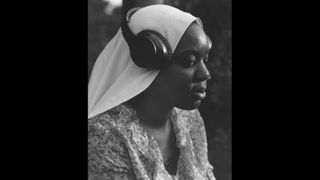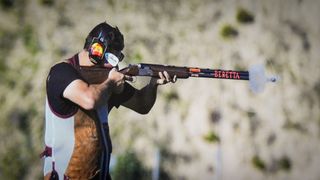Watch video: How to shoot creative castle shots
We are truly blessed in the UK for historic buildings and monuments, and our array of magnificent castles are no exception. Where I live, in Wales, is home to a whopping 427 castles, so you’re never far from one to get your photographic fix.
Castles can range from huge, grand dwellings to small follies, stone towers, and almost unrecognizable overgrown ruins. What the smaller ones sometimes lack in architectural prowess, however, they make up for with loads of character – and with every castle, you’re guaranteed they should provide potential for your photographic outings.
Try not to find photographing these large structures too daunting, as in this project I hope to give you a head start on your approach to capturing a piece of history and taking some top castle photos.
1. Symmetrical shots
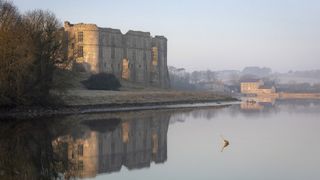
Castles are often located close to water, or even surrounded by a moat. Use this to your advantage and include the water in your scene so that you can play with the reflections and the symmetry they create. Try out varying camera heights to see what works best. Getting down low at water level creates the illusion that your castle is appearing to float on its own, reflecting like a mirror. You’ll need a calm or windless day for this, so you get optimum reflections.

Early mornings offer the best conditions. With lower light levels, a long exposure can have the added benefit of smoothing out any ripples as well. Enable the grid display on your camera to help you frame up a totally symmetrical shot.
2. Lens choice
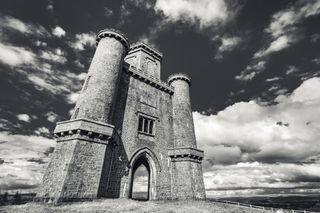
Choosing the right lens will be the main factor controlling your field of view and what you include or exclude in your images. Castles are generally big structures, so I always tend to start out with a wide-angle zoom lens, or perhaps a 24-70mm standard zoom lens.
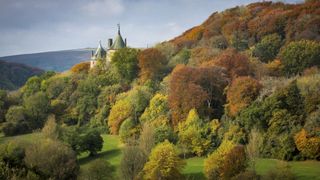
You may spot certain aspects of the castle that you’d rather isolate on its own, and this is when I would swap for a longer optic, such as a telephoto 70-200mm lens, to pick out intricate details such as windows, carvings or stone sculptures. Taking an abstract approach can also produce compelling images. I also carry a super wide-angle 16-35mm lens. This enables you to get close to walls or gateways and really distort the perspective.
3. The right light

I love to photograph castles using side lighting. This is where the sun is to your left or right, casting light across the scene. Apps like PhotoPills can help you find the best time to visit your location for the light you need on any given day. Side lighting also helps to control exposures, as you’ll find that the sky and landscape generally require the same exposure.
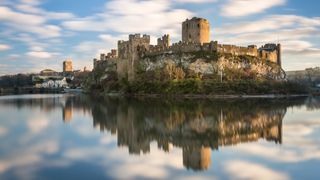
In addition, side lighting helps to emphasize the depth and textures found on the stonework and any features of the castle. On sunny days, use a circular polarizer filter to boost blue skies and clouds, and control any surface glare. Also try an ND filter, as I did here for a long 30-second exposure to blur the moving clouds and smooth the waters.
4. Visit at night
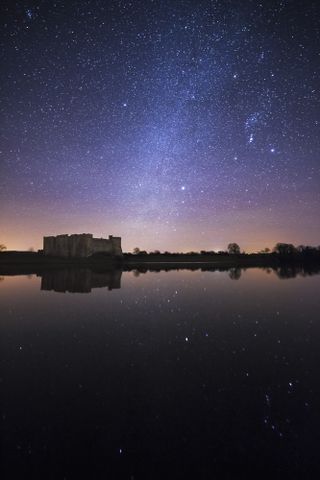
Visiting castles and ruins at night will put a whole new spin on your landscape photos. Try out some night photography techniques such as light painting or shooting star trails to make your images stand out. For pin-sharp starry sky scenes, I set my camera up on a tripod, and find a nice composition using a torch to help me compose.

Shoot in manual mode and start with a shutter speed of 30 seconds, set the aperture as wide as it will go (such as f/2.8) and dial in an ISO of 1600. Take a test shot and then adjust the sensitivity depending on whether your image is too dark, or too bright. If the stars are nice and bright but the castle looks dark this is where a little light painting can come in handy; just shine your torch evenly over the castle during the exposure to help it pop out from the dark scenery.
Take a look at the best cameras for landscape photography, as well as the best lenses for landscapes, to give your castles the power of Grayskull.



